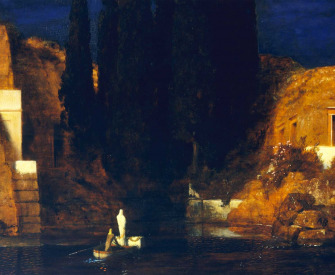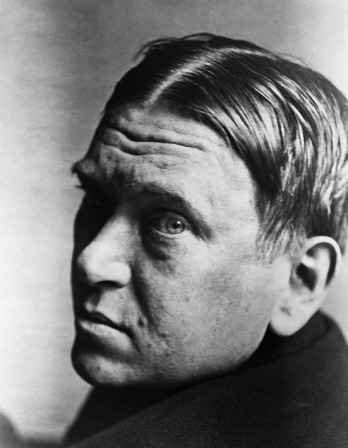Caesar: Are we all ready? What is now amiss
That Caesar and his senate must redress?
Metellus Cimber: Most high, most mighty, and most puissant Caesar,
Metellus Cimber throws before thy seat
An humble heart—[kneeling]
Caesar: I must prevent thee, Cimber.
These couchings and these lowly courtesies
Might fire the blood of ordinary men,
And turn preordinance and first decree
Into the law of children. Be not fond,
To think that Caesar bears such rebel blood
That will be thawed from the true quality
With that which melteth fools, I mean, sweet words,
Low-crooked curtsies and base spaniel fawning.
Thy brother by decree is banished:
If thou dost bend and pray and fawn for him,
I spurn thee like a cur out of my way.
Know, Caesar doth not wrong, nor without cause
Will he be satisfied.
Metellus Cimber: Is there no voice more worthy than my own,
To sound more sweetly in great Caesar’s ear
For the repealing of my banished brother?
Brutus: I kiss thy hand, but not in flattery, Caesar,
Desiring thee that Publius Cimber may
Have an immediate freedom of repeal.
Caesar: What, Brutus!
Cassius: Pardon, Caesar; Caesar, pardon:
As low as to thy foot doth Cassius fall,
To beg enfranchisement for Publius Cimber.
Caesar: I could be well moved, if I were as you;
If I could pray to move, prayers would move me:
But I am constant as the northern star,
Of whose true-fixed and resting quality
There is no fellow in the firmament.
The skies are painted with unnumbered sparks;
They are all fire and every one doth shine;
But there’s but one in all doth hold his place:
So in the world; ’tis furnished well with men,
And men are flesh and blood, and apprehensive;
Yet in the number I do know but one
That unassailable holds on his rank,
Unshaked of motion: and that I am he,
Let me a little show it, even in this;
That I was constant Cimber should be banished,
And constant do remain to keep him so.
Cinna: O Caesar,—
Caesar: Hence! Wilt thou lift up Olympus?
Decius Brutus: Great Caesar,—
Caesar: Doth not Brutus bootless kneel?
Casca: Speak, hands, for me!
[Casca first, then the other conspirators and Brutus stab Caesar]
Caesar: Et tu, Brute! Then fall, Caesar! [Dies]
From Julius Caesar. It is believed that in the first seven years of the 1600s Shakespeare completed the comedies Twelfth Night, All’s Well That Ends Well, and Measure for Measure, as well as the tragedies Hamlet, Othello, Macbeth, and King Lear. For his staging of this play, the Bard relied on Thomas North’s 1579 translation of Plutarch’s Parallel Lives.
Back to Issue





